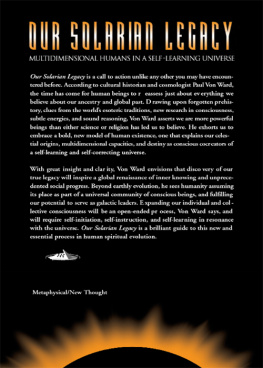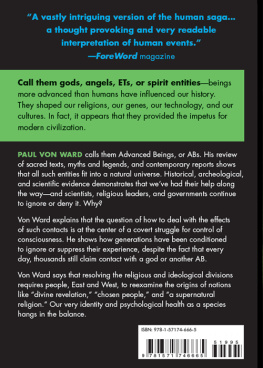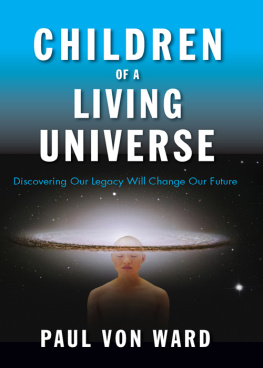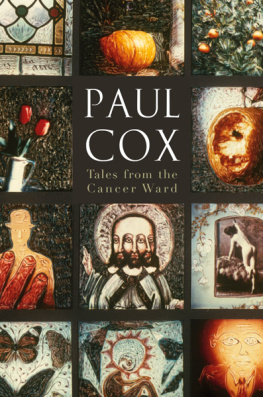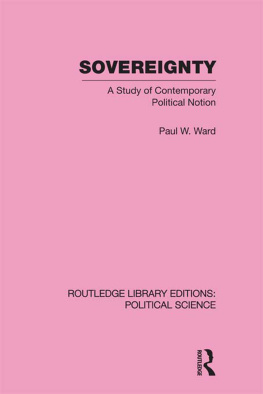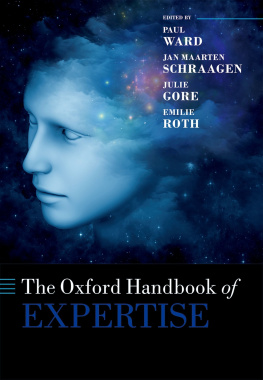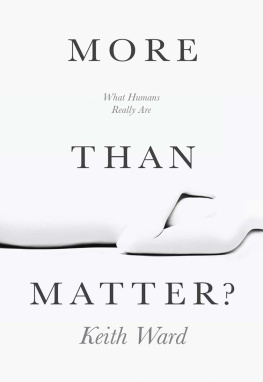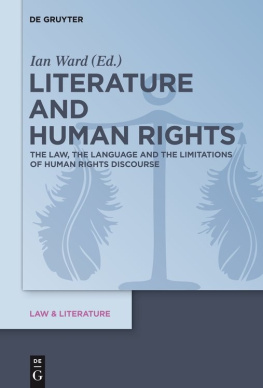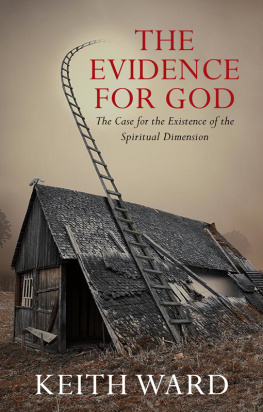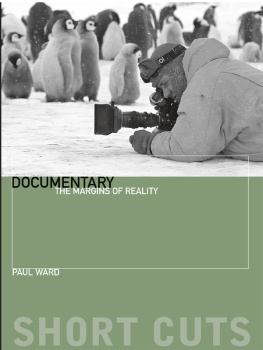
Other Books by Paul Von Ward
Solarian Legacy: Metascience and a New Renaissance Dismantling the Pyramid: Government by the People

Copyright 2001
by Paul Von Ward
All rights reserved, including the right to reproduce this work in any form whatsoever, without permissionin writing from the publisher, except for brief passagesin connection with a review.
Cover design by Steve Amarillo
Cover art by PhotoDisc
For information write:
Hampton Roads Publishing Company, Inc.
1125 Stoney Ridge Road
Charlottesville, VA 22902
434-296-2772
fax: 434-296-5096
e-mail:
www.hrpub.com
If you are unable to order this book from your local bookseller, you may order directly from the publisher.
Call 1-800-766-8009, toll-free.
Library of Congress Catalog Card Number: 2001091198
ISBN 1-57174-214-X
10 9 8 7 6 5 4 3 2 1
Printed on acid-free paper in the United States
www.redwheelweiser.com
www.redwheelweiser.com/newsletter
For
My Mother
and
All mothers whose yin receptivity make possible transmission of the human legacy and whose yang nurturing contributes to achievement of our potential.
Contents
Acknowledgments
This book, like all human creations, is a product of the species and the universe of which we are parts. As I cannot claim credit for all of it, neither can I give credit to all who have made contributions. The initial inspiration f or it came from my own seeking of answers to the questions with which we all grapple when faced with a wareness of our apparent mortality. But the energy and thoughts necessary to bring such disparate pieces of human kno wledge together have flowed from an all-sustaining life force and the unseen fields of our collective consciousness.
Most of the information used in this book has come from the research and analysis of friends and colleagues on whose shoulders I stand. Many of their works are referenced in the notes and suggested reading list. I have only added my unique perspective on how all the pieces fit together, drawing new inferences from the material. Thus, I must take responsibility for the decisions on what to include in the final version of what was truly a community effort.
Earlier versions of significant sections of the material in this book were originally published in Solarian Legacy: Metascience and a New Renaissance. I express my appreciation to the people of Oughten House for its publication and to those at Medicine Bear Publishing for its distribution. All those who participated in the preparation of that volume have my eternal gratitude. If you have read Solarian Legacy, I trust that you will find many of the ideas expressed in it to be much more fully developed in this book, and that you will appreciate the new research and concepts incorporated here.
While it is im possible to satisfactorily attribute credit to the many individuals who have made significant and direct contributions to this book, I would like to name a few. All know how they helped make a theoretical concept into a palpable reality: Brenda Sanchez, Tonette Long, Judith Cope, Nancy Parker, Rosemary McMullen, Celeste White, Michael Brein, Brian O'Leary, Elliott Dacher, Rosemary Whitford, Jim Schuette, Kelesyn Winter, Tony Stubbs, John White, and Joyce Shafer.
Finally, I wish to thank Frank DeMarco for believing in the merit of the work, and making support and resources available for its publication, and Richard Leviton for his constructive critiques and editorial finesse. The quality and beauty of the final product are due to their commitment and the excellent work of all the good staff at Hampton Roads Publishing Company.
Preface
Are you ready, in the company of frontier scientists and metaphysicians, to engage in an assessment of many of society's most cherished assum ptions about the history of the Earth and its human inhabit ants? Are you ready to look at published research, material developed by independent scholars, and to personally test their insights with your own experience? If you are, I promise a dramatically reshaped perspective on the human legacy and, conseq uently, on your approach to daily life, by the time you complete this book.
As humanity faces some of the most profound challenges in our history, I believe we are simultaneously provided with the internal resources to meet them. In expanding our view of this universe, we will also enhance our grasp of the inner resources available to us. Though our telescopes cannot yet see beyond the curve of space-time, we can open our inner eyes to the full spectrum of a multidimensional reality.
The book that follows is not intended to cover all the evidence for our Solarian legacy. (You'll learn the full meaning of that term in the following chapters.) Over a hundred and fifty books and articles are referenced, and many more contribute to this new view of the cosmos. I attem ptto articulate a provisional, but realistic, picture of the human legacy by synthesizing the ideas of countless others who willingly test alternative perceptions of reality. I examine material that has been either dismissed as unscientific by the intellectual establishment or ignored because of its uncon ventional sources. Included are studies on improperly labeled paranormal phenomena, reports of intelligent nonhuman beings, intriguing evidence of forgotten advanced civilizations, com pelling findings of frontier science, and wisdom germinated in some cosmic seedbed that springs up in unexpected ways.
Though the material and its im plications can be disturbing at first, I believe they ground us in a more stable field of conscious awareness. I try to balance openness with a healthy skepticism in this effort to move beyond a period of self-imposed blinders, into an era of our being self-conscious and self-directing cosmic beings.
Although I am passionate about the ideas set forth here, my fervor should be tempered by your own experience. As this book reflects my ongoing testing, I invite you to put its explicit and implicit assumptions to critical review. They should be found credible only if the following conditions are met:
- the integration of my ideas makes intellectual sense to you,
- the interpretations resonate with the your own observations, and
- your own experiences validate the hypotheses.
You will take them seriously for your own reasons. These ideas do not come from a chosen person with a special message from a divine or higher source of knowledge or power. I hope you find it valuable to engage in a joint exploration with a committed fellow human seriously trying to be as self-aware as possible in order to learn how to realize his full potential.
A Time of Reckoning?
Much ado has been made of the current era, but does it have any particular inherent significance in human history? Should we really believe something profoundly new is under way? Did the start of a new Christian-calendar millennium have any intrinsic meaning? As you will learn in this book, I believe in taking a hard look at the evidence and drawing the most simple and direct conclusion possible from it.
For example, different traditions have different calendars: Christian, Chinese, Muslim, Jewish, Mayan. Each represents artificial reference points to position us in relation to particular historical events. Consequently, there is no universal validity to any one of them. So, a millennium date pro vides only a social consensus for reflection, like using a birthday for reviewing the past year or making resolutions at the start of a new year.
Next page
